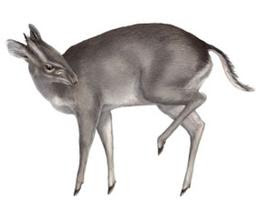Tanzania - Lake Manyara & Tarangire National ParksNorthern Tanzania presents a map of administratively independent National Parks that are actually interconnected and interdependent. Following the different seasons, rain patterns and other natural “rules”, different animal species move in the Parks as they have done for hundreds of years following their instincts to ensure their survival and the survival of their small ones.
The best known of these migrations is the one conducted every year by thousands of wildebeest and zebras in Serengeti and Masai Mara following the rains and searching for fresh grass. But it is not the only migration in Northern Tanzania, and wildebeest and zebras are not the only migrating animals.
We would like to report a less known migration, but equally fascinating, another survival lesson taught by nature, that will also help us being passionate about East Africa and professionals of the travel industry, to book our clients in the most convenient locations either in
Tarangire or
Lake Manyara National Parks depending on the season and clients´ requirements. With all the focus on the
Serengeti migration, the enormous seasonal game movements which take place in the greater Tarangire area tend to be very much overlooked and little understood. The Serengeti migration is estimated at around 2.5 million animals, including 0,5 million zebra and 1,7 million wildebeest. The remainder is made up largely of lesser antelope species.
Running perhaps 250,000 large mammals in total, the
Tarangire migration is around only a tenth of the size of the main Serengeti migration, especially in terms of zebra and wildebeest but it includes a much wider range of species, including giraffe, buffalo, oryx, ostrich and lion and, by far, the most significant component of this migration is the elephant population, which is thought to involve 5,000 to 10,000 animals. If one were to call it the Elephant Migration, it might achieve a much greater recognition.
As we start understanding this Elephant Migration, it should be noted that whilst the Serengeti migration tends to stick together for large parts of the year and is accessible as an entity in various locations, the Tarangire /
Manyara migration is much more of an annual aggregation and dispersal pattern, therefore only being a visual phenomenon for the period during which it comes together. Tarangire National Park covers a very large area of 2,600 km2, but lies at the heart of an ecosystem which is around ten times that size.
The
Tarangire National Park forms part of a bigger wildlife ecosystem covering over 20,000 sq km, which include the Lake Manyara National Park in the north, as well as five other surrounding wildlife controlled areas. The key to this wildlife ecosystem is the Tarangire River, and the local animal migration in the area begins from this river, at the start of the short rainy season around October every year. At the height of the long rainy season, the animals, which include wildebeest, Thompson gazelles, zebra and even African elephants, will be widely spread out over this 20,000 sq km area. When the wet season ends, the animals begin their migration back towards the river and spend the dry season July to October, concentrated in large numbers around the river.
The animals mostly disperse during April and May, when there is widespread greenery, vegetation and standing water to encourage all the grazers further afield. In June, the eland and oryxes begin to return, followed by elephant towards the end of the month. Tarangire is a great spot for elephant gatherings at the end of the rainy season in June, and zebra and wildebeest return together through July.
By mid-August all the animals are congregating around their last reliable water source, the Tarangire River. The calving season falls in the early months of the year, through January, February and March, and so makes the most of the fresh grass during the rainy season. There are a number of permanent year-round water sources in the area, which is crucial for the survival of animals.
The most significant of these water sources is the Tarangire River, which arises at the foot of the nearby Rift escarpment, flows into the park and then evaporates from its terminus at Lake Burunge on the western border of Tarangire NP.
During the dry season, July to October, game migrates to Tarangire National Park from the enormous hinterland and gathers in very high concentrations within the Park, and particularly along the central river valley. During the converse season, November to June, the presence of seasonal waterholes enables the game to migrate outwards, spreading across the surrounding game control areas.
Although the in and out movement is common, different species tend to move on different routes at different times. Wildebeest and zebra mainly move northwards towards Lake Manyara and beyond in the direction of Lake Natron, crossing the main Arusha to Serengeti highway along the way.
The main bulk of the wildlife, including buffalo, gazelle, elephant, kongini, eland and oryx move out onto the plains to the east and southwest. Other herds of wildebeest, zebra, buffalo and eland also move in a more southerly direction. Resident species which remain within the park include waterbuck, impala, warthog, duikers, giraffe and lesser kudu.
With regards to elephants, as migratory animals, sustainable management of African elephant populations, both within and around protected areas, is a major challenge in the conservation policy of many African countries. Migration routes in the zone are characterized by higher cover (open and closed forest) than core areas.
Outside the park poaching occurs at times, and hence it looks like elephant management must be considered across park boundaries and migration corridors must be protected against human disturbance and land cultivation. Society problems linked to elephant conservation can be solved by creating alternative, sustainable, use of natural resources that enhance the livelihood of local communities.
By LLA
Need more info? Please contact our
Safari Experts now.
Call: 0044 (0)1227 753181









